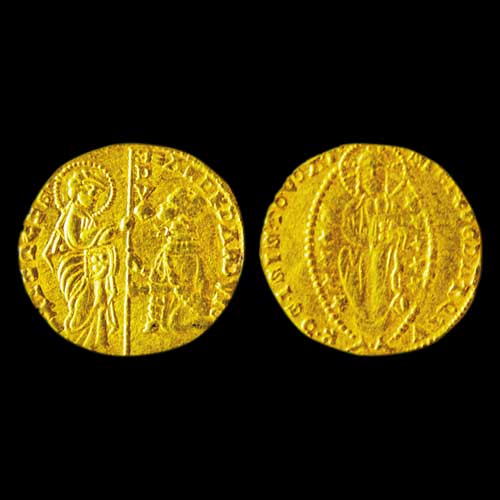Princeton University Acquires Rights of Gold Ducat Imitations
2017-12-06 Wed
The Princeton University Library Numismatic Collection has got the rights for the Benjamin R. Bell Collection of Ducats, by a bequest from late Benjamin R. Bell. He was a coin dealer, a collector and a scholar of the medieval ducats of Venice and their manifold imitations. He passed away at a young age, earlier this year.Bell decided to leave his collection to Princeton because of the presence in their numismatics collection of a substantial number of related coins, which have already served as the basis of research by students and faculty.
Issued as currency, the Bell Collection of 190 gold coins were rich in ducats attributed to Italian, Greek and Turkish minters and later examples struck on the Indian sub-continent. It also includes many examples of significantly lower weight and fineness than Venetian ducats, which Bell argued were minted to fit into the Byzantine monetary system.
Princeton’s curator of numismatics and a specialist in the coinage of Venice, Alan Stahl says “the Venetian ducat established itself in the 14th century as the dominant coin of Mediterranean trade, eclipsing in important Islamic and Byzantine denominations.
Some Mediterranean mints identified their rulers on ducat issues, copied after those of Venice, but others retained the name of Venetian doges, with only minor changes in style and inscriptions that allow modern scholars to distinguish them from authentic issues.
The large collection of imitation ducats acquired by Princeton as part of the Latin Orient Collection in 2007, with the support of the Stanley J. Seeger Hellenic Fund, has already served as the basis of the research of Sarah Kampbell, who received her doctorate in history in 2013.
Latest News
-
Janma Kalnayak of Bhagwan Mahavir
2024-04-24 WedOn 21st April 2024 which was the 2550th Janma Kalnyanak of Bhagwan Mahavir Swami, PM Modi unveile...
-
Gold Pagoda of Vijaynagar Empire King Deva Raya I
2024-04-10 WedKing Deva Raya I of the Vijayanagara Empire was a patron of Kannada literature and architecture. He ...
-
Silver Denarius of Septimus Severus
2024-04-05 FriLucius Septimius Severus served as the Roman emperor from 193 to 211 AD. Severus sat on the throne o...
-
Extremely rare 'Malaharamari' type Gold Gadyana of King Guhalladeva-III Sold for INR 611000
2024-04-03 WedTribhuvanamalla, also known as Guhalladeva III, was the ruler of the Kadamba dynasty. His reign coin...
-
90 Years of RBI
2024-04-02 TueOn 1st April, PM #Modi unveiled a special commemorative coin marking 90 Years since the foundation o...

